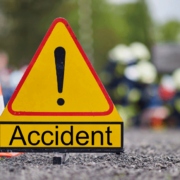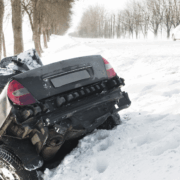Legal Options for Victims of Road Rage Accidents in Kankakee County
The familiar drive along the U.S. Route 45/52 or the daily commute on Interstate 57 can turn from routine to terrifying in an instant. A single impatient honk, an ill-advised gesture, or a misjudged lane change can ignite a disproportionate and dangerous response from another driver. Suddenly, you are no longer just sharing the road; you are the target of someone’s uncontained anger. This is the frightening reality of a road rage incident, where a simple traffic dispute escalates into a deliberate act of aggression that can leave victims with serious physical injuries and deep emotional scars.
When an aggressive driver’s actions cause a collision, the aftermath is far more complex than a typical accident claim.
What Legally Constitutes Road Rage in Illinois?
It is important to distinguish between aggressive driving and road rage, as the law treats them very differently. While both are dangerous, one is a series of traffic violations, while the other often rises to the level of a criminal offense.
- Aggressive Driving: This typically involves a combination of moving traffic violations that endanger other people or property. It is rooted in impatience and disregard for safety, but not necessarily a direct intent to harm a specific person. Examples include excessive speeding, tailgating, weaving through traffic, and running red lights. While a driver can be held liable for causing an accident through aggressive driving, it is usually treated as a matter of negligence or recklessness.
- Road Rage: This goes a step further. Road rage occurs when a driver loses control of their temper and uses their vehicle as a weapon or engages in threatening behavior directed at another person. It involves a clear intent to intimidate, harass, or injure. Under Illinois law, these actions can lead to serious criminal charges such as assault, battery, reckless conduct, or even vehicular homicide, entirely separate from any civil lawsuit you may file.
The key distinction is intent. A negligent driver who causes a crash made a mistake. A road-raging driver who causes a crash made a choice to use their vehicle to cause harm.
What Are the Most Common Forms of Road Rage?
Aggressive and violent driving behaviors can manifest in numerous ways, putting everyone on the roads around Kankakee, Bourbonnais, and Bradley at risk. Recognizing these actions is the first step in protecting yourself. Some of the most frequently reported road rage behaviors include:
- Forcing a vehicle off the road or into another lane of traffic.
- Intentionally ramming, side-swiping, or bumping another vehicle.
- Purposefully cutting off another driver and slamming on the brakes (brake-checking).
- Exiting a vehicle to confront, threaten, or physically assault another driver.
- Throwing objects at another vehicle.
- Displaying a weapon to intimidate another driver.
- Excessive and aggressive tailgating to menace the driver in front.
- Blocking a vehicle from changing lanes or moving.
Any of these actions can serve as the basis for both a criminal case handled by the Kankakee County State’s Attorney and a civil personal injury claim to recover damages.
How Does a Road Rage Claim Differ from a Standard Car Accident Case?
The presence of intentional harm fundamentally alters the legal approach to a road rage incident compared to a standard negligence-based accident. These differences have significant implications for a victim’s path to recovery.
- The Basis of the Claim: A typical car accident claim is built on the legal theory of negligence. You must prove the other driver breached a duty of care (e.g., they were texting or ran a stop sign) and this breach caused your injuries. In a road rage case, the claim is based on an intentional tort, such as battery (if they hit you) or assault (if they made you fear being hit). You must prove the other driver acted with intent to cause harm or contact.
- Parallel Legal Proceedings: A road rage incident often triggers two separate legal cases: a criminal case and a civil case. The state prosecutes the driver for their criminal acts. You, the victim, file a civil lawsuit to seek financial compensation for your losses. A conviction in the criminal case can be powerful evidence in your civil claim.
- The Complication of Insurance: This is perhaps the most significant difference. Most auto insurance policies contain an “intentional acts exclusion.” This clause states that the policy will not cover damages that arise from the policyholder’s intentional or purposeful acts. As a result, the at-fault driver’s insurance company will almost certainly deny your claim, arguing that road rage is not a covered “accident.”
What Steps Should I Take Immediately After a Road Rage Incident?
The actions you take in the moments following an encounter with a violent driver are vital for your safety and for preserving your legal rights. Your first priority must always be to protect yourself and your passengers.
- Do Not Engage: Do not retaliate, make eye contact, or escalate the situation. Your safety is paramount. Lock your doors and keep your windows up.
- Call 911: Report the incident to law enforcement immediately. Provide the dispatcher with your location, the direction you are traveling, and as much information about the other vehicle as possible: the make, model, color, and license plate number. Describe the driver and their aggressive actions.
- Drive to a Safe Location: Do not pull over on the side of the road and do not drive home if you believe you are being followed. Instead, drive to a populated, well-lit area like a police station, fire department, or busy shopping center like Northfield Square Mall.
- Gather Evidence (Safely): If it is safe to do so, use your phone to take pictures of the damage to your car and the other driver’s car. If there are witnesses, ask for their names and contact information. Note the precise location, time, and details of the incident while they are fresh in your mind.
- Seek Medical Attention: Go to an emergency room at a local hospital like Riverside Medical Center or AMITA Health St. Mary’s Hospital, even if you feel fine. Adrenaline can mask injuries, and seeking immediate medical care creates an official record that links your injuries to the incident.
- File a Police Report: Make sure an official police report is filed. This report is a key piece of evidence that documents the facts of the case from a neutral law enforcement perspective.
How Do You Prove a Road Rage Claim in Kankakee County?
Navigating the aftermath of a car accident is always stressful, but when that accident was fueled by another driver’s deliberate aggression, the stakes—and the legal complexities—rise significantly. In Kankakee County, proving a road rage claim requires more than just showing that a driver was negligent; it requires proving intent.
Because a road rage claim involves proving a specific, malicious state of mind, the evidence required is often different and more extensive than in a simple negligence case. An experienced attorney will meticulously work to gather a wide range of compelling evidence to build a strong case that unequivocally demonstrates the other driver’s aggressive actions. This thorough approach is crucial for establishing liability and securing fair compensation for the victim in the Kankakee County Circuit Court.
The Legal Distinction: Negligence vs. Intentional Tort
In a standard traffic accident, the legal theory is usually “negligence”—the idea that a driver failed to exercise reasonable care. However, road rage falls under the category of an “intentional tort” or “willful and wanton conduct” under Illinois law. To win, you must demonstrate that the defendant intended to cause harm or acted with an utter indifference to the safety of others. This higher burden of proof necessitates a more robust evidentiary strategy.
Essential Evidence for Your Kankakee County Claim
To secure a favorable outcome, your legal team will focus on several key pillars of evidence.
The Police Report and Citations
A comprehensive police report is the foundation of any motor vehicle claim. In road rage cases, the specific charges filed by the Kankakee County Sheriff’s Office or the Kankakee Police Department are vital.
If the responding officer issues a citation for Reckless Driving (625 ILCS 5/11-503), Assault, or Battery, it provides an official record of the incident that goes beyond simple traffic violations like “failure to reduce speed.” The report captures the officer’s initial assessment, observations of the other driver’s demeanor (such as visible anger or irrational behavior), and statements made at the scene. In Kankakee, where local juries value the testimony of law enforcement, a detailed report citing aggressive behavior is incredibly persuasive.
Criminal Conviction and “Res Judicata”
If the other driver is prosecuted and convicted in the 21st Judicial Circuit Court for an offense related to the incident, this serves as powerful proof. In many instances, a criminal conviction for a crime like aggravated assault with a motor vehicle can be used in your civil case to prevent the defendant from denying their actions. This can significantly streamline the litigation process, shifting the focus from whether they are liable to how much they owe in damages.
Independent Eyewitness Testimony
In a “he-said, she-said” scenario, the tie-breaker is almost always the independent witness. These are individuals who have no stake in the outcome of the case—other drivers, pedestrians, or nearby business owners.
Independent witnesses can provide objective accounts that corroborate your version of events. Their observations of the other driver’s pre-collision behavior—such as tailgating, “brake checking,” shouting, or making obscene gestures—are invaluable. In the tight-knit communities of Kankakee, Bradley, and Bourbonnais, finding witnesses who saw the lead-up to the crash on busy thoroughfares like Route 50 or I-57 can be the turning point for your claim.
Video Footage: The Irrefutable Proof
In the modern era, video footage is often the most powerful and irrefutable evidence available. Your attorney will cast a wide net to locate:
- Dashcam Video: From your vehicle or from other motorists who witnessed the event.
- Surveillance Footage: Kankakee businesses along major roads often have security cameras that catch the periphery of traffic incidents.
- Traffic Cameras: While not always recorded or archived, certain intersections may have monitoring that can be subpoenaed.
Visual evidence captures the “physicality” of road rage. It shows erratic lane changes, sudden swerving to cut a victim off, or the terrifying moment a driver intentionally rams another vehicle. It leaves no room for the defendant to claim the collision was a “mistake.”
911 Recordings
The audio from a 911 call is a “contemporaneous” record—it happens while the event is occurring. These recordings capture the fear and urgency in your voice, providing a real-time, emotional account of the incident. Furthermore, the background audio of a 911 call can be crucial; it might capture the sound of the other driver’s engine revving, their horn blaring, or even their shouted threats. This helps establish the “malicious state of mind” required for a road rage claim.
Physical Evidence and Accident Reconstruction
The nature of the vehicle damage itself can tell a compelling story. An accident reconstructionist—a specialized expert often hired by personal injury attorneys—can analyze:
- Impact Angles: To show the vehicle was steered into yours rather than drifting.
- Tire Marks: “Scrub marks” or lack of brake marks can indicate an intentional strike rather than an attempted stop.
- Event Data Recorders (EDR): Most modern cars have “black boxes” that record speed, throttle position, and braking in the seconds leading up to a crash. If the data shows the defendant accelerated into your vehicle, the argument for “accidental” negligence disappears.
Your Testimony and “Victim Impact”
Your own clear, consistent, and detailed account of the events is a vital piece of the puzzle. Beyond just describing the crash, your testimony allows you to convey the emotional and physical impact of the incident. Road rage victims often suffer from more than just physical injuries; they may experience significant PTSD, anxiety about driving, and emotional trauma from being targeted. In Kankakee County, a sincere and well-prepared witness can help a jury understand the human cost of the defendant’s anger.
Seeking Punitive Damages in Kankakee County
One of the primary reasons to prove road rage (intent) rather than just negligence is the availability of punitive damages. While standard compensatory damages cover medical bills and lost wages, punitive damages are designed to punish the wrongdoer and deter others from similar behavior.
Under Illinois law, if you can prove the defendant acted with “fraud, actual malice, deliberate violence or oppression, or… such gross negligence as to indicate a wanton disregard of the rights of others,” you may be eligible for these additional awards. Proving the “intent” behind road rage is the key to unlocking this compensation.
What Compensation Can a Road Rage Victim Recover?
Illinois law allows victims of intentional acts to seek compensation for the full range of their losses. These damages are designed to make the victim whole again and, in some cases, to punish the wrongdoer for their egregious conduct.
Economic Damages: These are the tangible, calculable financial losses resulting from the incident.
- All past and future medical expenses (hospital bills, surgery, physical therapy, counseling for trauma)
- Lost wages and income from time missed at work
- Diminished future earning capacity if you suffer a long-term disability
- Costs to repair or replace your vehicle and any other damaged property
Non-Economic Damages: These compensate you for the profound, non-financial harms that have impacted your quality of life.
- Pain and suffering
- Emotional distress, anxiety, and mental anguish
- Post-traumatic stress disorder (PTSD)
- Scarring and disfigurement
- Loss of enjoyment of life
Punitive Damages: In cases of extreme and willful misconduct like road rage, Illinois courts may award punitive damages. Unlike the other categories, these damages are not meant to compensate the victim for a loss. Instead, their purpose is to punish the at-fault driver for their outrageous behavior and to deter others from engaging in similar conduct. An award of punitive damages is never guaranteed but is a possibility in road rage cases that is not typically available in standard negligence claims.
How Do You Get Compensation if Insurance Denies the Claim?
Facing a denial from the aggressor’s insurance company due to the intentional acts of exclusion can feel like a devastating setback, but you are not without options. A knowledgeable attorney can help you pursue other avenues for recovery.
- Uninsured/Underinsured Motorist (UM/UIM) Coverage: Your own auto insurance policy may provide a path to compensation. In many situations, an intentional act by another driver that causes you harm can trigger your own UM/UIM coverage, treating the at-fault driver as if they were uninsured.
- Direct Lawsuit Against the At-Fault Driver: You can file a personal injury lawsuit directly against the aggressive driver. If you win a judgment, you can seek to collect it from their personal assets, such as bank accounts, property, or through wage garnishment.
- Criminal Restitution: As part of the criminal sentencing, a judge can order the defendant to pay restitution to you for your financial losses. While often not as comprehensive as a civil award, it is another important source of recovery.
Navigating these options requires a thorough investigation into the at-fault driver’s assets and a clear understanding of the terms of your own insurance policy.
Contact a Kankakee County Car Accident Attorney Today
The aftermath of a road rage accident is a whirlwind of fear, anger, and confusion. You are left to cope with physical pain, emotional trauma, and a complex legal situation that feels unfair and overwhelming. Holding the responsible driver accountable is not just about securing financial compensation; it is about seeking justice for a deliberate act of violence.
If you or a loved one has been injured by an aggressive or violent driver in Kankakee County, you do not have to face this challenge alone. Contact the Fotopoulos Law Office today at 708-942-8400 for a free and confidential consultation. We will listen to your story, explain your legal rights, and outline a strategy to pursue the full compensation you deserve.














Leave a Reply
Want to join the discussion?Feel free to contribute!